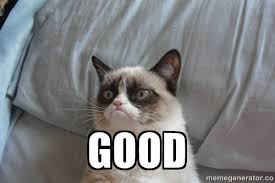
Haven’t got a lot. I don’t need a lot. Java’s only a dime.

Dodged a bullet there.
Oracle will appeal and if they are allowed to present the evidence that they were not allowed to present at this trial, they may very well win on appeal. This isn’t over by a long shot.
It’s a shame Congress is so useless that there’s no way they could ever conceive of a law to prevent the kind of stupidity that allows API copyrights. It’s insane to even imagine someone would claim copyright to the content of the outline of a specification.
Thanks Cory for a much better explanation of the case than all the other articles I’ve read.
WOW!!!
Ignore these additional words.
Indeed, it’s pbly not over…but don’t get sucked into accepting Florian’s pro-Oracle blarney as a reasonable guide to, or predictor of, how that appeal will play out. (For instance…check out his employment/consulting history…)
Anyway, this is great news. If I was the shouting type, I’d be shouting, "GOOOOOOOOOOOOOOOAL!
I don’t see Java surviving. Nobody without Google’s deep pockets is going to risk the expense of another blast of stupid from Larry Ellison.
“Blast of stupidity” is a good way to put it, it does make one wary. The funny thing is they are looking for a legal win and probably unsettling all the tech workers in the field that make decisions. I wonder what the blowback from this blast of stupidity will cost them.
Fine by me. I spent a good few years working with it myself, but in my opinion Java is a fossil that belongs in a museum.
Java 8 has some nice things and in general the language and ecosystems have improved, though it’s still painful at times. I hop between Java (mostly 1.6, sigh), Ruby, JS, and C (and bits of Perl/sh/Python/etc) for the job. They all have pain points, though I always feel saddest when I launch Eclipse, and most paranoid when I’m dealing with C.
This is another step forward in the evolution of Java. We’re very excited to be able to offer developers the opportunity to easily display lines of text…
- Jon Kannegaard, Javasoft VP of software products, May 27, 1997, (approximately a year after Java’s release)
Ha, you know what’d be funny? If IBM or ANSI or whoever decided to sue Oracle for implementing SQL in their RDBMS products. That’s basically an API, right?
Yes, I know they can’t and wouldn’t, but it’s not an entirely invalid analogy…
."…system or method of operation not restricted by copyright."
I do so hate it when people try to pervert copyright into a cheap, easy, long lasting patent. Patent protection is more difficult to get because the protection it gives a creator is more broad.
If Oracle actually gets what they want, we’ll be lucky to have the damage confined only to Java.
Were this just a tiff betweeen Oracle and Google over some garden variety copyright infringement, it really wouldn’t matter very much. Google can afford the hit; and if Oracle really was ripped off(rather than just having their J2ME licensing market dry up because of the iPhone Discontinuity effectively annihilating all dumbphone OSes that used either J2ME or BREW for such limited ‘apps’ as they offered) the mere fact that the company is a raging asshole don’t change the fact that they’d be entitled to redress.
The contention in this case, though, is that you essentially can’t implement API compatibility without committing copyright infringement; and if that holds, all sorts of things are in for a world of pain, since software development has been going on for some decades on essentially the opposite premise, so virtually everything of note has lots of ‘infringement’ built into it by now.
I think you mean “desktop Java”. The main use of Java is in enterprise servers. I would far rather write and debug Java on a server than C++.
If you look at the way COBOL clings on to life, and look at Java penetration in the web server market, Java is likely to be around for many, many years. Even if it is the IBM implementation.
